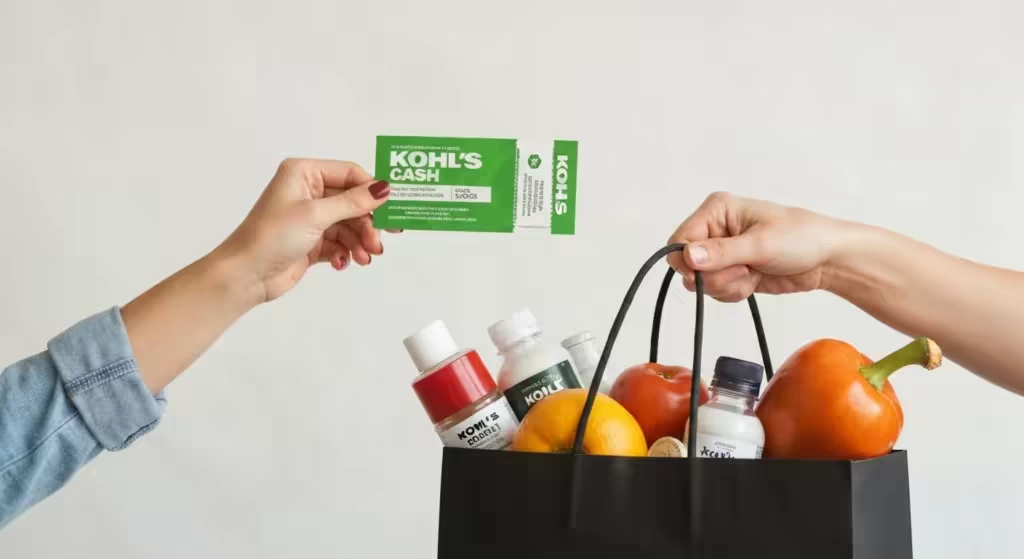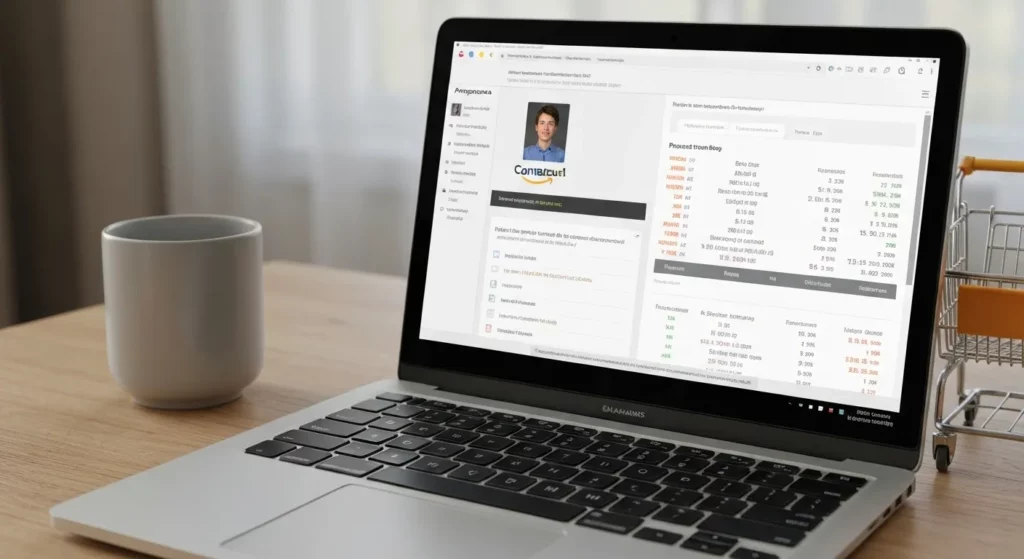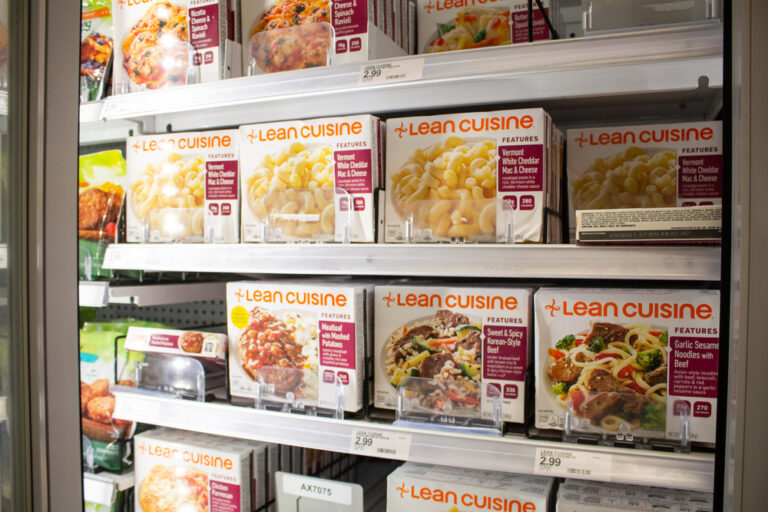Many Costco scams are going around, and they can be quite sneaky!
Mary, 72, a widow in Gilbert, Arizona, got an email inviting her to participate in an online survey about Costco Wholesale. The email looked professional, complete with the familiar red and black logo. A former customer, Mary, didn’t hesitate, thinking it was a legitimate marketing effort to win back her business. The subject line, “We Miss You, Mary! Share Your Feedback for a Special Gift,” felt personal and convincing. She was promised a gift for taking the survey and picked “a tiny, one-ounce bottle of CBD oil,” because she had heard about its benefits from friends but had never tried it.
A retired teacher, Mary, carefully entered her information, trusting the process. She used a debit card to pay what she believed was a nominal $5.90 fee for shipping and handling—a small price for a premium product. However, the next day, her heart sank when she checked her bank statement. Instead, she was charged $90—more than she had in her account—and was consequently slapped with a $35 overdraft fee by her bank. When she tried to contact the “company” through the email, she received no response. The website from the survey was gone. The entire experience left her feeling foolish and violated.
This is just one example of the Costco scams that a lot of people are victims of, a stark reminder of how fraudsters exploit the trust that well-known brands have built with their customers. These scams are not just about small financial losses; they can lead to significant emotional distress and compromise your personal data.
With over $237 billion in sales in 2023 alone and millions of loyal customers worldwide, Costco is one of the world’s biggest retailers—and a prime target for fraudsters and scammers. The company’s reputation for value and customer service makes it a perfect disguise for criminals. They know that a message seemingly from Costco is more likely to be opened and trusted than one from an unknown entity, significantly increasing their chances of success.
According to experts from the Federal Trade Commission (FTC), Americans lost nearly $361 million to online shopping scams in 2023, with many scammers using Costco’s name and branding to scam shoppers. This number only reflects reported losses, meaning the actual figure is likely much higher. Scammers are becoming more sophisticated, using advanced techniques to make their fake communications and websites nearly indistinguishable from the real thing.
If you’re a Costco member, or even just a casual shopper, you could wind up losing money or having personal information mishandled if you fall for the many Costco scams going around. The consequences can range from a small financial loss to full-blown identity theft. Whether it’s a text message about a free TV, a website offering an unbelievable deal, an online ad for a special promotion, or an email asking for feedback, you must be cautious about what you respond to and where you click.
To help you stay safe, we’ve rounded up some of the most common Costco scams, detailing how they work and what you can do to avoid them. Check this out, especially if you’re a Costco member, and share this information with your friends and family to help protect them too!

1. Costco survey text messages, calls, emails, or letters
This is a pervasive scam in which fraudsters reach out to potential victims via email, phone, text, or even in professionally printed letters, promising enticing rewards or special offers if you fill out surveys about your Costco experience. The promised “reward” is often something desirable, like a $100 gift card, a high-tech gadget, or an exclusive coupon, all designed to lower your guard.
Victims of survey scams are asked to share personal information, which the scammers claim is necessary for “verification” or to ship the gift. This can include their full addresses, names, birthdates, or even sensitive bank account details and credit card numbers. The end goal for the scammer is either direct financial theft, identity theft, or selling your personal data on the dark web to other criminals.
As one of the most infamous Costco scams, it’s best to be informed about this one. If you receive a survey from Costco via text message, email, or letter and you want to ensure it’s legit, your best bet is to contact Costco directly through their official website or phone number. A simpler method is to ask an employee next time you’re shopping there whether the company is currently sending surveys. Show them the survey communication you received, and they should be able to give you a definitive answer.
If the survey pitch comes over the phone, don’t crack under pressure and give out your personal information. Scammers are masters of creating a sense of urgency or excitement. Trust your gut; if the caller entices you with a large amount of money or a prize that seems too good to be true, it almost certainly is. You’re just one step away from becoming a victim of these insidious Costco scams. You can use this notebook to write down the phone numbers trying to lure you into scams, so next time they call you, you know not to answer and can block the number.
Legitimate companies, including Costco, have strict policies about data collection and will never ask for details like your two-factor authentication codes, Social Security Number (SSN), or full bank account information in exchange for participating in a customer satisfaction survey. Any survey that asks for these highly sensitive details is a massive red flag and is undoubtedly a scam designed to compromise your security.
2. Imposter Costco websites
In this deceptive scheme, hackers create spoofed, or counterfeit, versions of the Costco website to try and fool victims into buying non-existent goods or entering sensitive personal information. These fake sites can look stunningly realistic, often copying the official branding, layout, and product images directly from the real Costco.com.
This is another example of Costco scams that tend to be pretty successful, unfortunately, because they prey on our visual trust. These imposter websites are often part of larger phishing frauds that start with texts and emails. The initial message might advertise a “flash sale,” “liquidation event,” or “exclusive online-only deal” with a link that directs you to their fraudulent storefront.
Whether you clicked a link in an unsolicited email or found it among the search results, you might end up on a website that closely resembles Costco’s and advertises jaw-dropping special deals, like a new laptop for $99. However, the first and most crucial step is to check the URL, which is the link to the website in your browser’s address bar. You’ll see something other than the official `Costco.com`. Scammers use slight variations, such as `Costco-deals.net`, `Shop-Costco.org`, or a long, jumbled URL. Always look for `https://www.costco.com/` as the start of the address.
If your usual login information doesn’t work on the website, this is another confirmation that you’re not actually on the real Costco website. Do not try to reset your password on this site, as you will just be handing your email and a potential new password over to the scammers. If you have already entered your password, you should immediately go to the *real* Costco website and change your password, and do the same for any other online account where you use the same or a similar password.
3. Phony Costco order confirmation emails
No. 3 on the list of Costco scams is a particularly clever one that uses fear to provoke an immediate reaction. You receive an email notification about a recent (typically large and expensive) Costco order supposedly placed from your account. The email might list an item like a 75-inch television or a high-end diamond ring, with a total cost of several thousand dollars. If you try to see more details or, more likely, cancel the fraudulent order via the provided link or support phone number listed in the email, you’re instead connected with a scammer posing as a helpful customer service representative.
When it comes to Costco scams like this one, the first thing you need to do is stay calm and check your order history directly on the real Costco website or app. Do not panic. Log in to your account the way you normally would—by typing `Costco.com` into your browser directly. Remember to not click on any links or attachments in the shady emails you receive, as they can lead to phishing sites or install malware.
Another thing you can do is call the official Costco phone number. This is a critical step. Avoid calling any numbers listed in the suspicious email, as you will be ringing the scammers directly. Instead, search online for Costco’s official number for online order support and speak with a legitimate representative who can confirm whether any such order was placed on your account. They can also help you secure your account if you are concerned it has been compromised.
4. Fraudulent Costco giveaways
In this scam, victims receive an exciting email or text stating that they won a Costco giveaway, such as a brand-new electronic item, a high-value gift card, or even an all-expenses-paid vacation. The message creates a sense of euphoria and urgency. But if you click on any links in the text or email to see what you’ve won, you’re sent to a fraudulent website. This site either discreetly downloads malware to your device or presents a form that requests personal and financial information to “verify” your identity and process the shipment of your “prize.”
If you receive a message like this, pause and ask yourself if it seems too good to be true. Did you actually enter a contest? If you don’t remember participating in any type of giveaway, you can be sure that the “prize” is a scam. Legitimate giveaways are rare, and unsolicited notifications of winning are almost always fraudulent. Another red flag is a request for you to pay a small fee for shipping, taxes, or processing. A real prize is free; if you have to pay, it’s a purchase, not a prize.
When it comes to Costco scams like this one, always check the email address the message was sent from. Hover your mouse over the sender’s name to reveal the full email address. If the email isn’t sent from an official `@costco.com` email address, you can safely assume someone’s trying to fool you. Scammers often use email addresses that look plausible at a glance, like `costco.winners@gmail.com` or `support@costco-rewards.com`.
Also, beware of generic email greetings and poor grammar. If you’re addressed generically—such as “Valued Customer,” “Dear Shopper,” or “Account Holder”—rather than by your name, consider it a red flag. This often indicates a scammer is sending out a mass email blast, trying to target a multitude of victims at once. Professional communications from a company like Costco will almost always use your name.
Keep reading to discover other Costco scams!

5. “Overcharge” reimbursement text messages
This scam, a form of “smishing” (SMS phishing), typically comes in the form of a text message claiming that you were overcharged for a recent Costco order. It might say something like, “Costco billing error: You were overcharged by $47.21 on your last visit. Please claim your refund here.” To get your reimbursement, you’re asked to click on a link and share your bank or credit card details to process the so-called refund. It’s one of the most common Costco scams because it seems plausible and plays on our desire for fairness.
If this happens to you, the first thing you should remember is that overcharge refunds are usually processed automatically by legitimate businesses. In the rare case that Costco overcharges you for an order, whether online or in-store, the extra funds are typically refunded to your original payment method without any steps required on your behalf. There is no need for you to fill out a form with your financial information again.
You may be sent an official notification informing you that the refund was processed, but if you’re instructed to fill out a form or click on a suspicious link to get reimbursed, consider this a major red flag. The link will take you to a phishing site designed to harvest your credentials. Scammers create a sense of urgency by mentioning that the refund link will expire soon, pushing you to act before you can think it through.
Also, be extremely cautious if you’re asked for your bank account details to process a refund. A trustworthy company like Costco that already has your payment details on file from your purchase won’t ask you for your full credit card or bank account numbers to issue a refund. If you’re ever in doubt, log into your official Costco account online to check your purchase history and statements, or call their official customer service line.
6. Spoofed social media posts
No. 6 on our list of Costco scams you should be wary of is when fraudsters create fraudulent social media profiles (often on Facebook, but also on Instagram and X) impersonating Costco. These scammers methodically build up their follower count by sharing phony Facebook photos and posts, often stolen from Costco’s real pages, to appear legitimate. Once they have an audience, they either share phishing quizzes (“See which Kirkland product you are!”) or post about fake giveaways and clearance sales to steal personal information from unsuspecting users.
When it comes to Costco scams of this type, it’s recommended to always do a bit of research before interacting with a social media page. To identify a fake Costco social media profile, first check to figure out if the account is verified. Look for a blue or green check mark beside the profile name, which indicates that the platform has confirmed the account’s authenticity. The official Costco Facebook page, for instance, has this verification badge.
You should also review recent account activity and the page’s history. A recently created account with few followers, minimal posts, or posts with numerous spelling and grammar errors is a huge sign of a fake social media profile. Check the comments on their posts as well. Often, you’ll see other users calling out the page as a scam. If you find a fake page, use the platform’s built-in tools to report it as fraudulent to help get it taken down.
7. Unexpected executive member reward emails
This scam is especially aimed at Costco executive members, which are those loyal members who pay an annual fee of $120 on the Executive Membership to earn 2% back on their purchases. If you’re one of these members, you’re a prime target for specific and highly convincing Costco scams, as scammers know you are an engaged customer.
In this scam, you receive an official-looking email stating you’ve earned a special, unexpected reward or that your annual 2% reward is ready to be claimed online. The email creates urgency, stating you have to claim it before it expires. If you go to the provided link and click it, you could unknowingly download malware to your device or be sent to a phishing page. In some situations, you’re headed to a page requesting personal login or financial information to “verify your identity” and receive your reward.
In order to avoid these Costco scams, it’s vital to know how the real reward program works. Costco mails the annual 2% Reward certificate with your membership renewal statement. It can also be redeemed by visiting the membership counter at any Costco warehouse. It is not typically sent via an email link that requires you to enter personal information. Therefore, you should ignore these kinds of emails, especially if you aren’t an executive member. If you don’t pay for the executive membership and receive one of these emails, you can immediately know it’s a scam.

8. Fake Costco job offers
No. 8 on our list of Costco scams is a cruel hoax where scammers create fake Costco job offers to prey on those seeking employment. This phishing hoax often starts with an unsolicited email or social media message announcing that Costco is hiring in your area for attractive positions with high pay and great benefits. In order to schedule an interview or apply, you are instructed to click on a link in the email, which, unbeknownst to you, may download malware to your device or lead to a fake application portal designed to steal your personal information.
In another, more insidious version of the same scam, you might go through a fake online “interview” process via chat or email. Afterwards, you’re informed you’ve got the job, but you are asked to pay a large fee to “move on” with your application. The scammers might claim this fee is for a background check, a uniform, or training materials. Once you send the money, the potential job offer and the “hiring manager” disappear without a trace.
Fraudsters use the promise of a well-paying, stable job with a reputable company like Costco to trick victims. Pay close attention to any potential warning signs of a job scam, such as emails from non-official email addresses (e.g., `costco.hiring@yahoo.com`), vague job descriptions, numerous grammatical errors, requests for sensitive information like your SSN or bank details early in the process, and “interviews” conducted exclusively via text messages or on platforms like WhatsApp or Telegram.
If you’re contacted about a job interview, it’s best to verify the listing on Costco’s official careers website (`Costco.com/jobs`). You can talk to someone directly at a local store to confirm if they are indeed hiring for that position. Most importantly, remember to never send money for applications or other processing fees. Legitimate companies, especially one of Costco’s stature, will never ask you to pay just to be considered for a position or to start a job. If you’re asked for money at any time during the hiring process, this is a clear and undeniable sign of a scam.
9. Bogus delivery notifications
Scammers know that if you are a frequent Costco customer, chances are you might be waiting for a delivery from an online order. In this scam, impostors impersonate Costco or even a major shipping carrier like the US Postal Service, UPS, or FedEx. They send a text or email claiming there was an issue with your delivery, such as a misspelling in your shipping address, an “insufficient address,” or unpaid customs fees. This is one of the most common Costco scams that many people fall prey to because it seems so plausible and urgent.
If you click on the link they send to you to “fix the problem” or “reschedule delivery,” you’re taken to a website that looks very similar to the Costco official one or the shipping carrier’s portal. When you try to log in to fix the supposed issue, you unwittingly enter your login credentials, and the scammers will steal them. They may also prompt you for credit card information to pay a small “redelivery fee,” which they will then use for fraudulent purchases.
If you receive a delivery error notice related to a Costco order, don’t check the status of it through links found in unsolicited emails or texts. The safest approach is to log in to your Costco account directly on their official website. Go to the “Orders & Returns” section, find the specific order, and click on the official tracking link provided there. This will show you the real, up-to-the-minute status from the actual shipping carrier, and you can see if a delivery issue is truly listed.
Also, make sure you ignore texts and delivery emails claiming to be from USPS about held packages. The USPS doesn’t send texts or emails about unclaimed packages or failed delivery attempts unless you have specifically signed up for that service for a particular package. If you get an unexpected message like this, do not click the link. Avoid interacting with it in any way and simply delete it.
Being aware of these schemes is the first step toward protecting yourself. If you liked our article on Costco scams, you may also want to empower yourself further by reading Costco Membership: 9 Free Things You Are Not Utilizing. Stay vigilant and shop safely!














